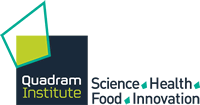This project is a joint studentship with the Food Standards Agency.
During the COVID-19 pandemic, sales of organic foods had the biggest year-on-year increase in 15 years. Claims that organic or free-range food is better and healthier for people and the planet may have helped drive this trend, despite sometimes contradictory evidence. Many food production systems, such as organic and free-range, variously include practices to improve animal welfare and reduce or avoid the use of artificial fertilisers, pesticides and antibiotics but what is the underlying evidence? This studentship will further understanding of the microbial pathogens and antimicrobial resistance (AMR) burden in both conventional and non-conventional food production systems.
This multidisciplinary project will utilise comprehensive microbiological and (meta)genomic approaches to understand the microbial pathogens and antimicrobial resistance (AMR) burden, and thus the food safety, of foods produced through organic, free-range and conventional systems. This project will include both wet lab and dry lab components, including study design, culture-based microbiology and both short-read and long-read genome and metagenome sequencing. You will benefit from existing links with policymakers, including the Food Standards Agency, who will have an interest in the results of this work, and from the experience of generating and communicating data for public health action. You will develop skills in state-of-the-art bioinformatics, microbiology, molecular biology and genomic epidemiology.
You will join an interdisciplinary team that will support your training and development. Quadram Institute Bioscience provides a stimulating and supportive environment for research on bacterial genomics, microbiology, and the microbiome, and you will also work with collaborators at the Royal Veterinary College and the Wellcome Sanger Institute. You will have intellectual input into shaping the project and there will be opportunities to collaborate with partners both within and outside the institute to develop further skills and impact of the project.
The Norwich Research Park Biosciences Doctoral Training Partnership (NRPDTP) is open to UK and international candidates for entry October 2022 and offers postgraduates the opportunity to undertake a 4-year PhD research project whilst enhancing professional development and research skills through a comprehensive training programme. You will join a vibrant community of world-leading researchers. All NRPDTP students undertake a three-month professional internship placement (PIPS) during their study. The placement offers exciting and invaluable work experience designed to enhance professional development. Full support and advice will be provided by our Professional Internship team. Students with, or expecting to attain, at least an upper second class honours degree, or equivalent, are invited to apply.
This project has been shortlisted for funding by the NRPDTP programme. Shortlisted applicants will be interviewed on either the 10th or 11th May 2022.
Visit our website for further information on eligibility and how to apply: https://biodtp.norwichresearchpark.ac.uk/
Our partners value diverse and inclusive work environments that are positive and supportive. Students are selected for admission without regard to gender, marital or civil partnership status, disability, race, nationality, ethnic origin, religion or belief, sexual orientation, age or social background.

 Continue with Facebook
Continue with Facebook



